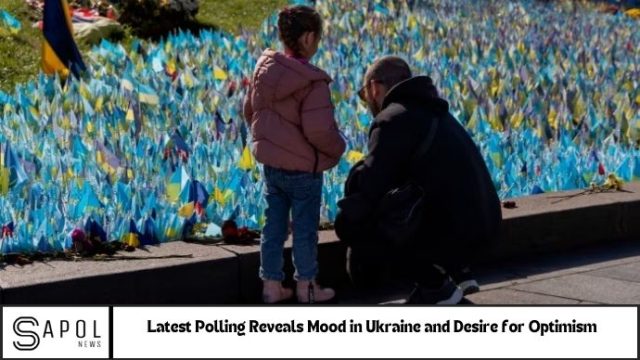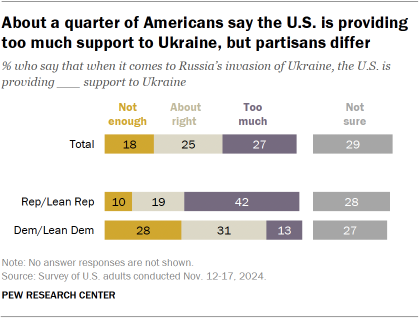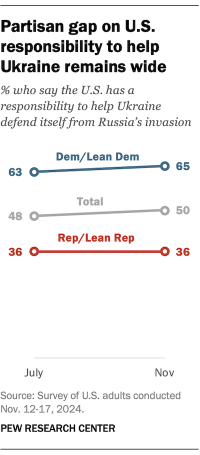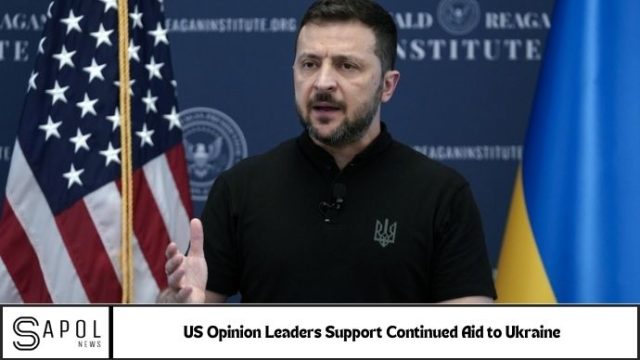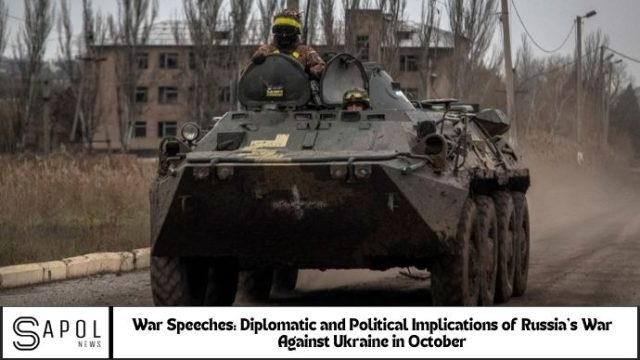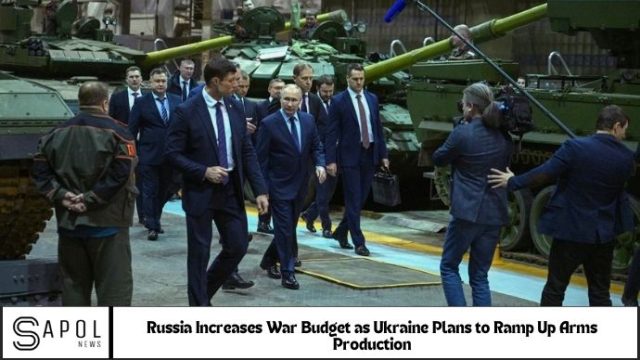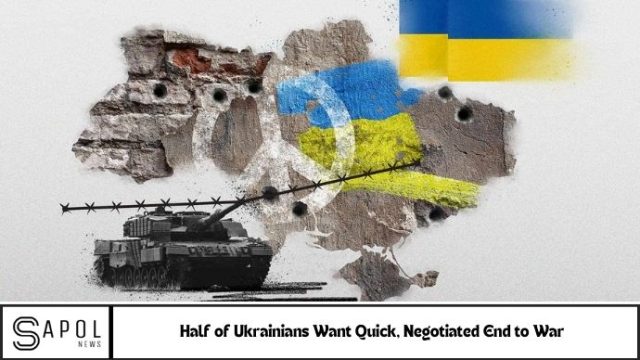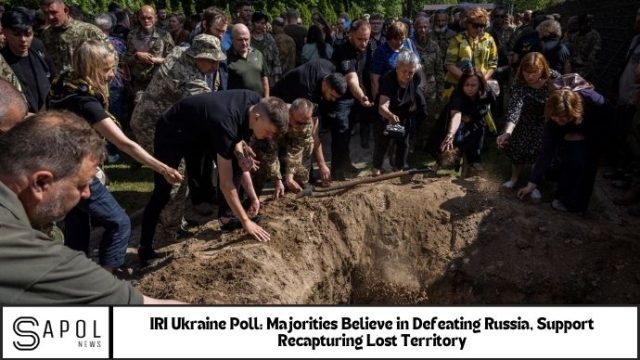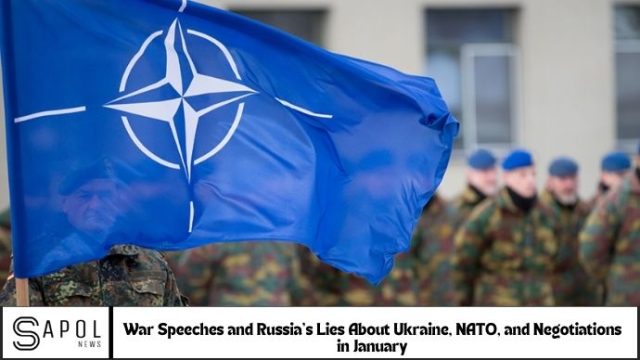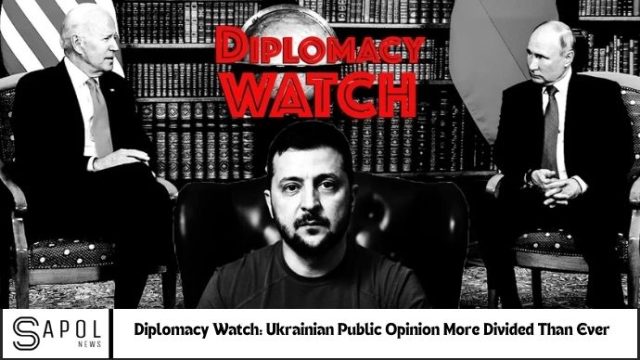Latest Polling Reveals Mood in Ukraine and Desire for Optimism
Latest Polling Reveals Mood in Ukraine and Desire for Optimism Ukrainians have faced nearly two years of war since Russia’s invasion on February 24, 2022. Over 6.3 million Ukrainians have fled the country, and an estimated 3.7 million are displaced within their own borders.
The war has caused significant geopolitical and ecological damage, but the most profound impact has been felt by the ordinary Ukrainians who chose to stay behind and endure the daily hardships and horrors of the conflict.
As the war nears its third year, many are asking: What is the mood among the Ukrainians who have remained? As a political geographer who has conducted numerous surveys with colleagues in the region, I understand that measuring public opinion during wartime is particularly challenging.
Nearly 1 in 4 Ukrainians have been forced to leave their homes. Despite the 1,000-kilometer (620-mile) front line mostly stabilizing, missile and drone attacks remain a constant threat. While patriotic feelings run high, distrust remains widespread, especially in areas that were previously occupied by Russian forces.
Most public opinion surveys in Ukraine are now conducted via telephone interviews, with random calls made to working phone numbers, asking Ukrainians aged 18 and older to participate. Response rates can be low, but survey companies continue their efforts with persistence.
The latest survey by the National Democratic Institute (released on January 26, 2024) sheds light on how Ukrainians are coping with the ongoing crisis. Conducted by the Kyiv International Institute of Sociology, this telephone survey polled 2,516 Ukrainians between November 14-22, 2023. Four key findings stand out:
Understanding the Current Mood in Ukraine
Recent polling data paints a mixed picture of the situation in Ukraine. According to a Kyiv International Institute of Sociology (KIIS) survey conducted in December 2024, about 60% of Ukrainians report feeling a deep sense of patriotism and pride in their country’s resilience. However, the emotional toll of the war is unmistakable.
Key Insights from Recent Polling:
- Patriotism and National Unity: Despite the ongoing conflict, a significant portion of the population continues to express strong support for the country’s sovereignty and unity.
- Suffering and Loss: A large percentage of Ukrainians acknowledge the severe impact of the war on their lives. Over 70% report having personally experienced loss, whether through the death of loved ones, displacement, or destruction of homes.
The Desire for Optimism and the Power of Hope
While the war has undoubtedly been devastating, many Ukrainians continue to maintain hope for a better future. This desire for optimism is evident in several polling trends:
- Resilience: About 55% of Ukrainians expressed confidence in Ukraine’s ability to overcome the war, citing their determination and the support from allies.
- European Integration: Many Ukrainians remain hopeful about joining the European Union and see this as a long-term goal that could lead to a more peaceful and prosperous future.
The Role of Support Networks:
- Community Strength: The role of local communities and volunteer organizations has been essential in sustaining morale. People are not only helping their neighbors but also working together to rebuild what has been lost.
- International Aid: International support, particularly from Western nations, remains a key factor in fostering a sense of optimism. Ukraine’s desire for military and humanitarian assistance continues to shape public opinion and reinforce hope.
The Emotional and Psychological Impact of War
The war has taken a severe emotional toll on the people of Ukraine. Surveys show that mental health issues such as anxiety, depression, and trauma are widespread. Approximately 48% of respondents report feeling anxious or fearful on a daily basis, which has affected their overall outlook on life.
Coping Mechanisms:
- Psychological Support: Increasing access to mental health services is becoming more critical. Efforts to address psychological well-being through therapy and community programs are seen as vital for the population’s long-term recovery.
- Cultural Resilience: Ukrainian culture, traditions, and collective history play a significant role in helping individuals cope with the stress and trauma caused by war.
Key Polling Data on Hope vs. Realism
According to the latest figures:
- 45% of Ukrainians believe the country will eventually win the war and regain all its lost territories, but 50% are cautious, fearing the long-term effects of the conflict and the destruction of their infrastructure.
- While young Ukrainians remain the most optimistic, those who have lived through the worst of the conflict show higher levels of fatigue and despair, particularly in the east and south of the country.
What Does This Mean for the Future?
The mixed polling results point to a nation deeply divided between optimism and the harsh realities of ongoing warfare. The desire to remain hopeful is strong, but so is the awareness of the immense suffering that continues to impact lives. Moving forward, Ukraine will likely need both psychological resilience and economic support to rebuild.
May you also like it:
Wide Partisan Divisions in Americans’ Views of the War in Ukraine: What You Need to Know
War Speeches, ATACMS & Abrams for Ukraine, and Russia’s Diplomatic Moves
US Opinion Leaders Support Continued Aid to Ukraine
FAQ
1. How do Ukrainians feel about the future of their country?
Most Ukrainians remain hopeful about Ukraine’s ability to overcome the war, but many also acknowledge the challenges ahead.
2. What percentage of Ukrainians feel a sense of patriotism?
Approximately 60% of Ukrainians report feeling strong patriotism and pride in their country’s resilience.
3. How are Ukrainians coping with the emotional toll of the war?
Many Ukrainians rely on community support, local organizations, and psychological services to cope with the war’s emotional and mental impact.
4. Is there optimism for Ukraine’s future?
Yes, a significant portion of the population believes Ukraine will eventually regain its sovereignty and become a member of the European Union.
5. What impact has the war had on mental health in Ukraine?
About 48% of Ukrainians report experiencing anxiety or fear regularly, highlighting the war’s emotional and psychological toll.
6. How important is international support to Ukrainians?
International aid is crucial to fostering hope and optimism, particularly in military, humanitarian, and psychological support.
Conclusion
Polling in Ukraine shows a nation torn between the pain of war and the resilience of its people. While the suffering is profound, there remains a strong desire for optimism, especially as Ukrainians continue to hold on to their dreams of victory and rebuilding. International support and a focus on mental health will be key in sustaining the collective spirit needed to rebuild a post-war Ukraine.

